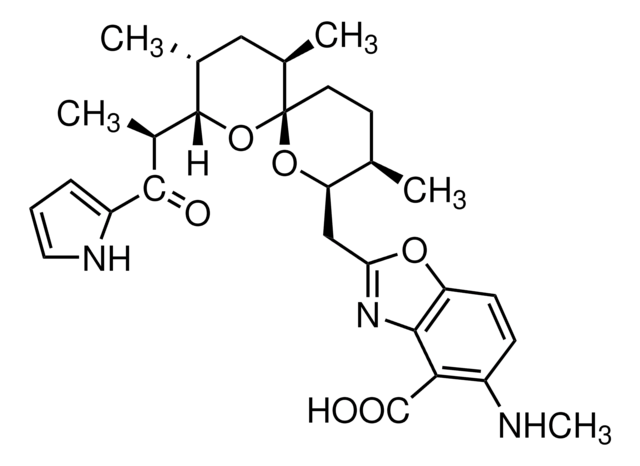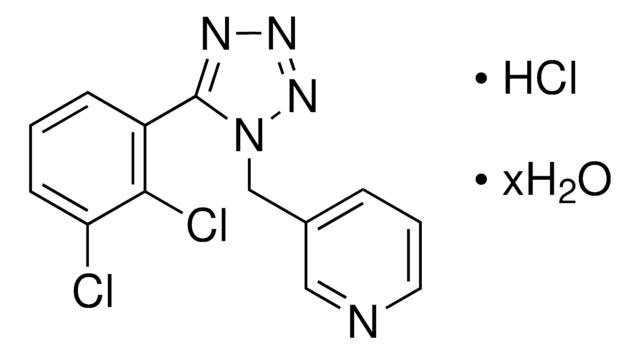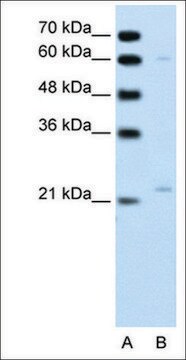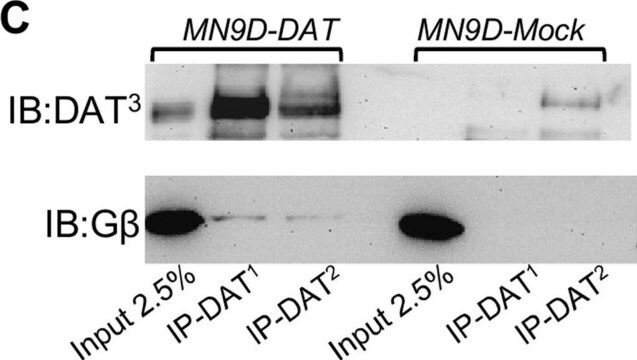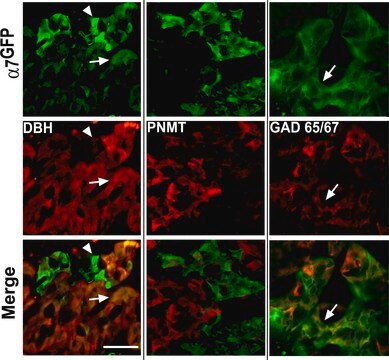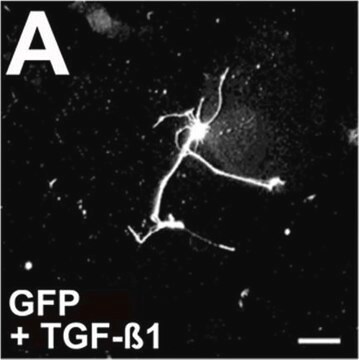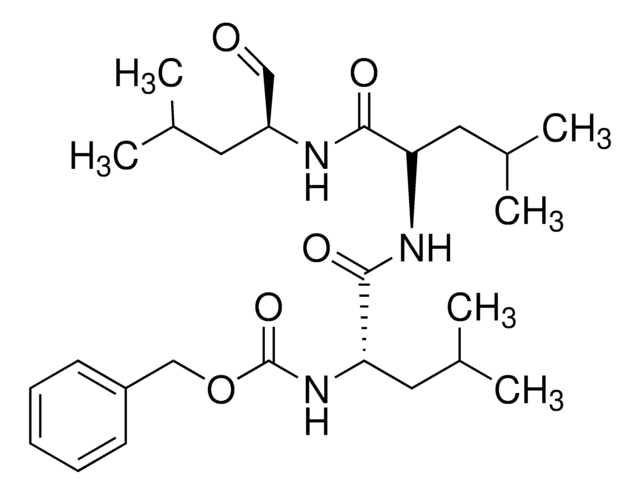ABT17
Anti-RGS4 Antibody
serum, from rabbit
Synonim(y):
regulator of G-protein signaling 4, regulator of G-protein signalling 4, schizophrenia disorder 9
About This Item
Polecane produkty
pochodzenie biologiczne
rabbit
Poziom jakości
forma przeciwciała
serum
rodzaj przeciwciała
primary antibodies
klon
polyclonal
reaktywność gatunkowa
rat
metody
western blot: suitable
izotyp
IgG
numer dostępu NCBI
numer dostępu UniProt
Warunki transportu
wet ice
docelowa modyfikacja potranslacyjna
unmodified
informacje o genach
human ... RGS4(5999)
Opis ogólny
Immunogen
Zastosowanie
Cell Structure
Signaling
Cytoskeletal Signaling
G-proteins
Jakość
Western Blot Analysis: 1:1000 dilution of the antibody detected RGS4 in 10 µg of PC12 cell lysate.
Opis wartości docelowych
Postać fizyczna
Przechowywanie i stabilność
Handling Recommendations: Upon receipt and prior to removing the cap, centrifuge the vial and gently mix the solution. Aliquot into microcentrifuge tubes and store at -20°C. Avoid repeated freeze/thaw cycles, which may damage IgG and affect product performance.
Komentarz do analizy
PC12 cell lysate
Oświadczenie o zrzeczeniu się odpowiedzialności
Nie możesz znaleźć właściwego produktu?
Wypróbuj nasz Narzędzie selektora produktów.
Kod klasy składowania
10 - Combustible liquids
Klasa zagrożenia wodnego (WGK)
WGK 1
Certyfikaty analizy (CoA)
Poszukaj Certyfikaty analizy (CoA), wpisując numer partii/serii produktów. Numery serii i partii można znaleźć na etykiecie produktu po słowach „seria” lub „partia”.
Masz już ten produkt?
Dokumenty związane z niedawno zakupionymi produktami zostały zamieszczone w Bibliotece dokumentów.
Nasz zespół naukowców ma doświadczenie we wszystkich obszarach badań, w tym w naukach przyrodniczych, materiałoznawstwie, syntezie chemicznej, chromatografii, analityce i wielu innych dziedzinach.
Skontaktuj się z zespołem ds. pomocy technicznej